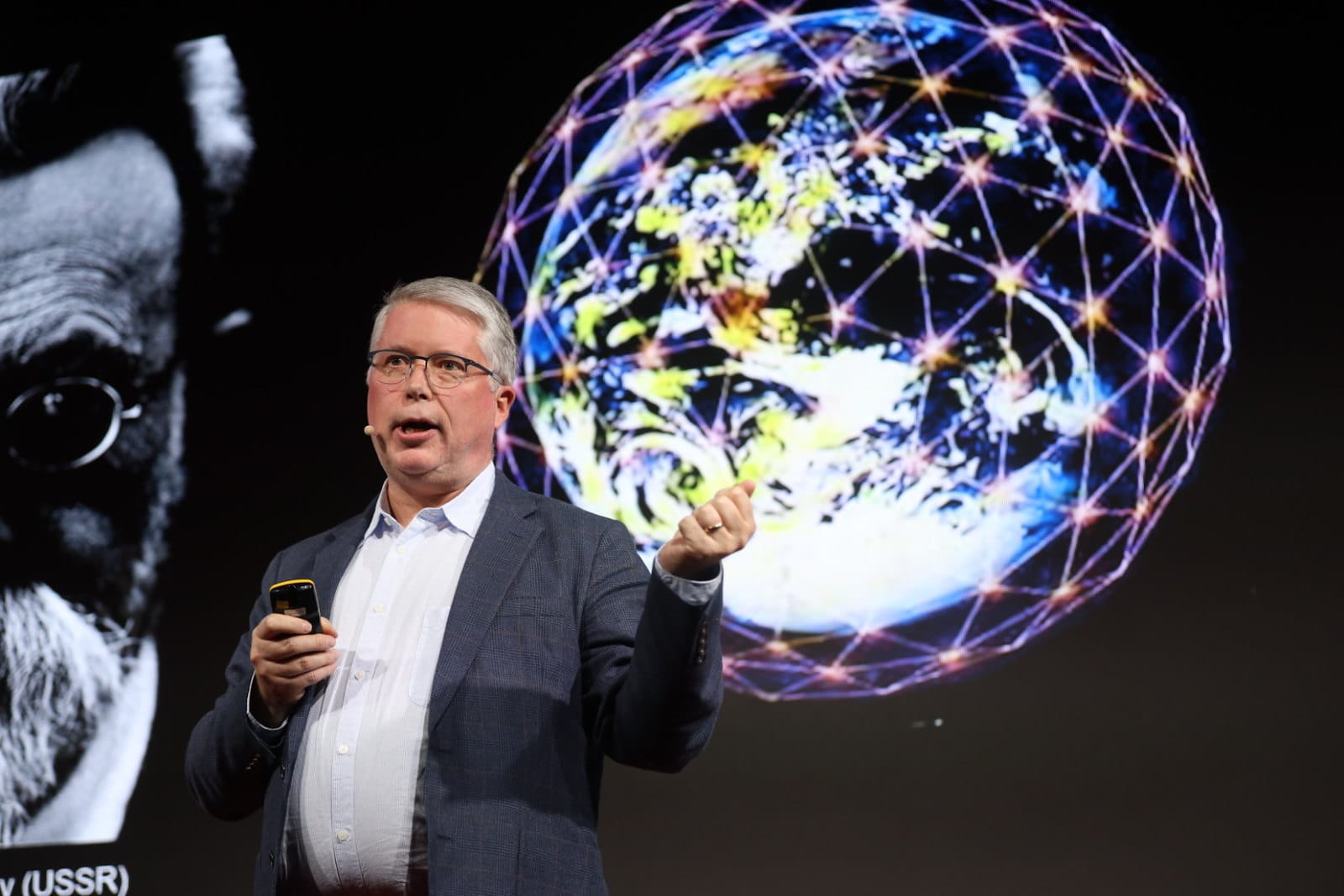What To Do When There Is Nothing To Be Done
Understanding our reality can feel immobilizing, but it doesn't have to be. Here are strategies you can use to fight for the future you want — even when it seems there is nothing you can do.

We are living through one of the most challenging moments in history, and it's easy to despair at the state of the world. Analyzing geopolitics and history is helpful because it gives us a better sense of what's actually happening, but all too often we are left feeling powerless, asking, "But what can we do about it?"
There are the obvious answers: vote, encourage others to vote, write letters to your representatives or to your newspaper, go to meetings and protests, post on social media, and, you know, do all the civic stuff we have been taught to do. Be an election judge. Donate to your favorite candidates. Go canvassing and do phone banking. It's almost tiresome to hear this pablum because, guess what — this stuff didn't work. We did all of that, and still we are about to crash headlong into a global fascist takeover. So, for real, what else can we do about it now? Here are some answers that are evergreen.
#1: Assess Your Identity and Your Capabilities
Who are you? Who do you know? What assets can you apply to the problem? Each of us will answer this question differently. If you are in Congress, you can leverage your connections and bring public attention. A CEO might take a leadership stance on an issue, or direct funds to a problem. An artist might be able to make a public art project, or launch a movement. A singer might write a song. A political organizer might launch a new campaign focused on a specific issue. A retiree on fixed income might volunteer for a cause they believe in. You are unique. Your response to fascism should reflect your unique identity and capabilities. Each morning, ask, "How can I make a difference today?"; each evening ask, "Did I do all that I could?"
In fact, this is the process entrepreneurs use to make change in the world. Entrepreneurship researcher Saras Sarasvathy calls this effectuation, wherein individuals take stock of who they are and what they have, making iterative bets, each with low downsides and higher upsides. We are thus each called to exercise our agency as entrepreneurial leaders. Effectuation is a skill anyone can acquire and master.
#2: Be An Asset to Your Communities
Each of us is a member of many different communities, ranging from family, church, and workplace to our neighborhood, city, and country. Fascism works in part by breaking down social ties and turning us against ourselves. Find ways to confound that process by maintaining a complex web of social connections. Participate in person. Show up for each other. Attend events. Get to know people, even if you may not agree on everything. When the fascist moment has passed, these bonds will help form the pathway out of the abyss.
#3: Think Small
We might think of the 1963 March on Washington when we talk about organizing and civic change, but smaller networks are equally important. Find many small groups of people you trust, as small as 2-5 other people. Use encrypted communications, like Signal. Meet in person and break bread, if you can, building trust slowly. Be a bridge-builder between trusted colleagues, where appropriate. Appreciate the beauty of all that can be achieved with quiet information sharing amongst a few of the right people. It's tempting to want to go big or grab headlines, but you are just as likely to make a big impact by focusing on solving important, discrete problems with a small number of trusted colleagues. Set goals and timelines, and focus on outcomes.
#4: Organize — But Watch Your Back
Large scale social movements can definitely be effective, and if you're in a position to help lead one, by all means consider it. But recognize you are operating in the middle of an information war against military adversaries. Your efforts will be subject to infiltration, capture, subterfuge, and sabotage. And you may also be risking physical harm for yourself and others. Exercise maximum care and diligence when evaluating offers of "help," whether in the form of financial or volunteer support. Carefully evaluate any potential partners. The more effective you are, the more you will be targeted. Be prepared, but do not be intimidated.
#5: Recognize That Ideas Are Weapons
We have been conditioned to think that taking action is all that matters, and that talk is for losers. But if you've heard of the "woke mind virus," you're already familiar with a specific kind of warfare — over worldviews. The war we are engaged in now is between two worldviews: one that is egalitarian and democratic and one that is hierarchical and autocratic. To the extent the democratic world has lost ground, it has been because of the spread and gradual acceptance of the autocratic worldview. To regain the upper hand, we need to more effectively propagate the democratic idea in the United States and the world at large. That means developing concise, clear, and winning arguments for democracy that go beyond mere defense of the status quo. This is a bigger challenge than most realize, and all of us are called to develop and spread winning ideas that cause the other side to lose ground. The spread of ideas, or memetic warfare, is part of modern conflict.
#6: Prepare for Civil Disobedience and Nonviolent Conflict
If history is any guide, we will see a rash of lawfare and other persecution of political enemies. Be prepared to defy such actions in ways that are contextually relevant for your situation. Protest, drawing public attention, and seeking political asylum elsewhere may all be options to consider. The field of Nonviolent Conflict specifically studies ways in which conflict can be waged and resolved without kinetic violence. It need not be pleasant, but productive conflict is possible, and it is valid to question whether one should submit to the rule of law if it is unjustly applied.
#7: Turn Off the News and Read Books
Social media and TV news networks are addictive, bathing our brains in neurotransmitters and cortisol. Cable news in particular is counterproductive in that it offers shallow analysis, prefabricated frames, and is geared towards short attention spans. In my experience, people who get most of their news from television are less informed, more anxious, and more paralyzed than those who don't. Be conscious of your media consumption habits. Read more books, academic papers, and other primary source materials. For day-to-day happenings, C-SPAN Radio is particularly good at delivering primary source coverage of Congress and other current events. Become familiar with the vast number of books and other resources that offer ideas like those presented here.
After reading this, my hope is that you have some of your own ideas about what to do. And indeed, that is the point. Each of us is called to do what makes sense from our unique perspective. There are countless resources to draw on as we navigate this moment. Find what works for you, and be a beacon for others to help them do the same. We will get through this. ◼
Additional Resources
There are too many useful resources to list here, but here are some I considered when preparing this concise article.
- Citizen Power — Eric Liu of Citizen University has developed tools and frameworks for citizens to use to claim and exercise thier power. [Podcast]
- Effectuation — Saras Sarasvathy is known as a professor of entrepreneurship, but the same skills are transferable to creating social change. [Paper; Effectuation.org]
- Who do we choose to be? — Margaret Wheatley's book focuses on "facing reality, claiming leadership, and restoring sanity," a process that starts with assessing who you are and how you can contribute to our collective future. [Book]
- Attention Spans — Sam Kahn argues that our adversaries are operating on much longer attention spans than we are, placing our democracies at risk. [Article]
- Information Warfare — We are in an information war with Russia and China, and this 1999 paper by Sergey Rastorguev explains how it works and the origin of the "mind virus" concept. [Paper]
- Reflexive Control — Reflexive Control is a Russian information warfare doctrine that seeks to induce a desired response from an adversary, while making them think it is their idea. Learn to resist it. [Paper]
- Nonviolent Conflict — Conflict is good, and we can wage it ethically. Jonathan Stray of the Better Conflict Bulletin shares ideas on how to make conflict more productive. [Article]
- How to Be Sand in the Gears of Tyranny — Emily Galvin-Almanza offers ideas of how to ethically break down the machinery of unjust power. [Essay]
- How Do Trees Communicate? — Step into the forest with Suzanne Simard, and the world of mycelial networks — which may offer insights into how we can make our society more resilient. [TED Talk]
- Disinformation and Society — My ongoing study of the effects of information warfare on democracies outlines ideas for how to build resilience in the face of erosion of our social fabric. [Paper]
- The Plague — Albert Camus' classic 1947 meditation on human suffering suggests that resistance, connection, and kindness are our highest calling, especially when nothing else can be done. [Book]
- Read the Canon — Timothy Snyder, Jason Stanley, Ruth Ben-Ghiat, Anne Applebaum, Nancy MacLean, Peter Pomerantsev, Steve Hassan, and Heather Cox Richardson have each contributed enormously to scholarship and popular understanding of fascism and how to resist it. Read, follow, and amplify their work.



